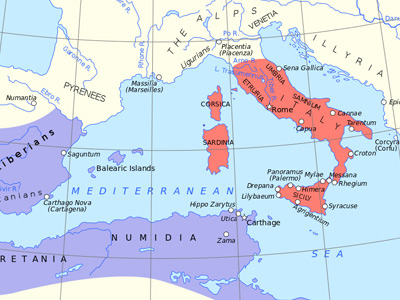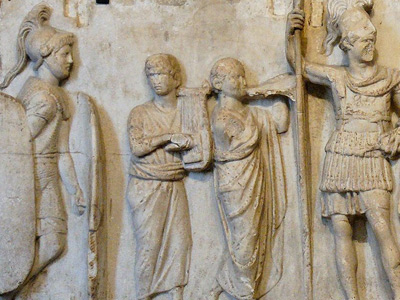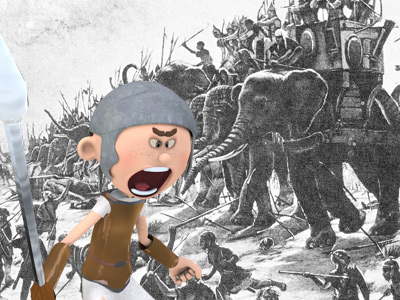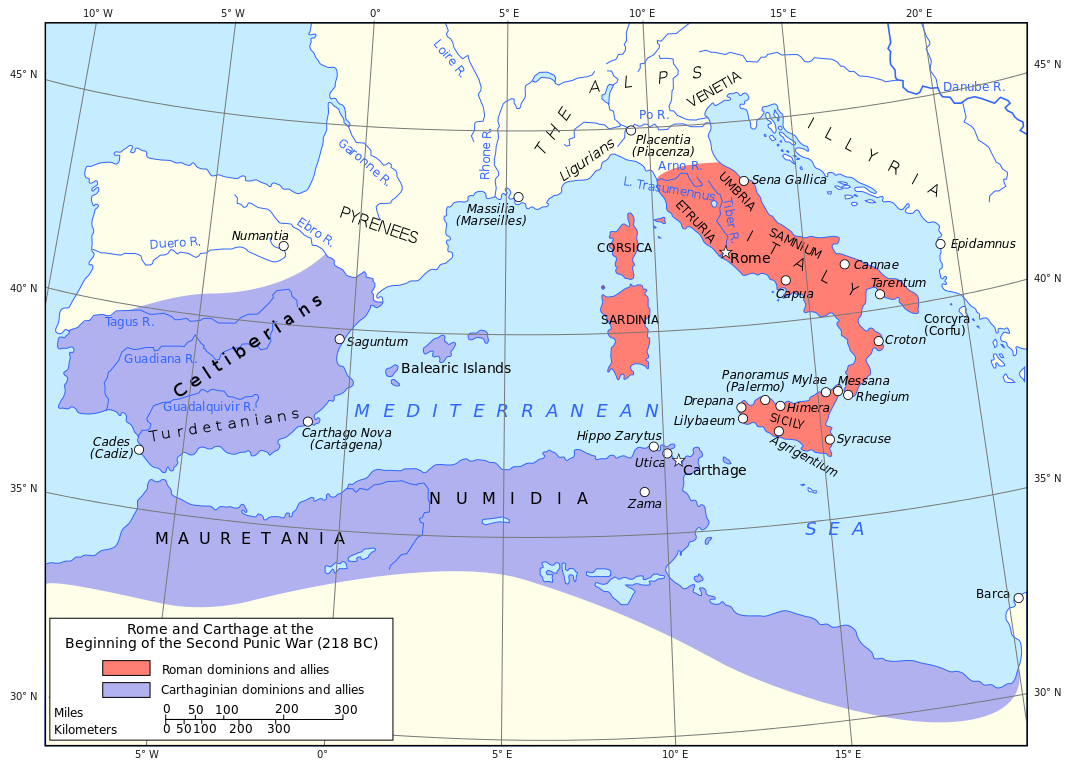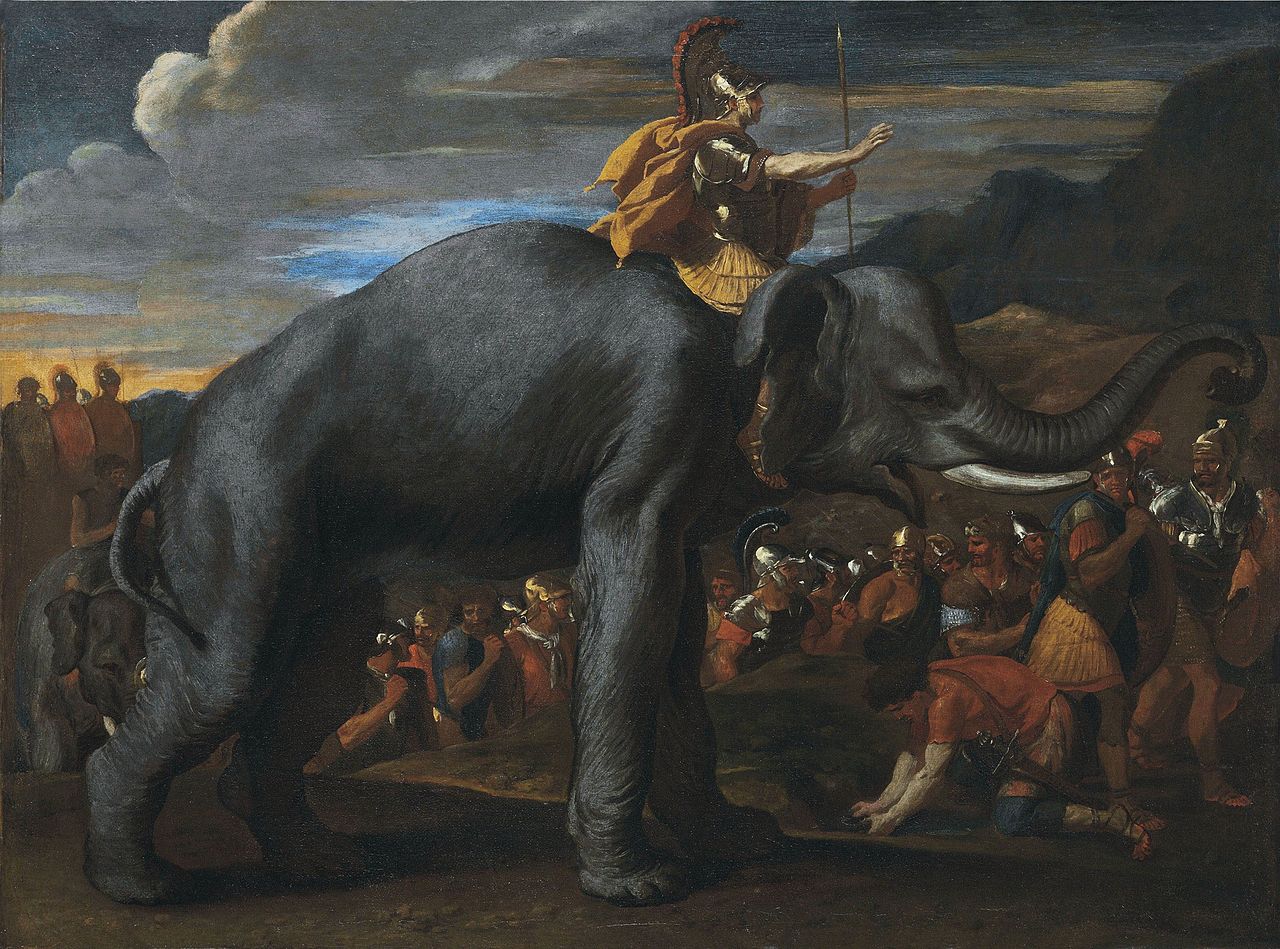Second Punic War (218-201 BC)
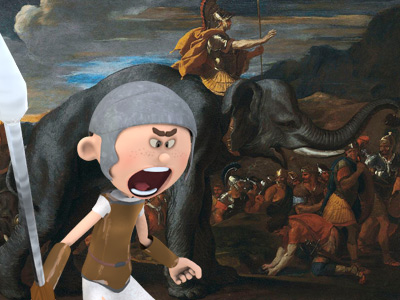
Broken Armistice and Final Peace Treaty
The decisive battle soon followed. Unlike most battles of the Second Punic War, the Romans had superiority in cavalry and the Carthaginians had superiority in infantry. The Roman The Roman Republic was a form of government of Rome and the era of the classical Roman civilization when it was run through public representation of the Roman people. Beginning with the overthrow of the Roman Kingdom (traditionally dated to 509 BC) and ending in 27 BC with the establishment of the Roman Empire, Rome's control rapidly expanded during this period - from the city's immediate surroundings to hegemony over the entire Mediterranean world. army was generally better armed and trained than the Carthaginians. Hannibal had refused to lead this army into battle, because he did not expect them to be able to perform. There had been very bitter arguments between him and the oligarchy. His co-general, Hasdrubal Gisco, was forced to commit suicide by a violent mob after he spoke in support of Hannibal's view that such troops should not be led into battle. Before the battle, Hannibal
The Roman Republic was a form of government of Rome and the era of the classical Roman civilization when it was run through public representation of the Roman people. Beginning with the overthrow of the Roman Kingdom (traditionally dated to 509 BC) and ending in 27 BC with the establishment of the Roman Empire, Rome's control rapidly expanded during this period - from the city's immediate surroundings to hegemony over the entire Mediterranean world. army was generally better armed and trained than the Carthaginians. Hannibal had refused to lead this army into battle, because he did not expect them to be able to perform. There had been very bitter arguments between him and the oligarchy. His co-general, Hasdrubal Gisco, was forced to commit suicide by a violent mob after he spoke in support of Hannibal's view that such troops should not be led into battle. Before the battle, Hannibal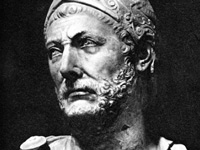 Hannibal Barca (247-183 BC), was a Carthaginian general, considered one of the greatest military commanders in history. Hannibal lived during a period of great tension in the western Mediterranean Basin, when the Roman Republic established its supremacy over other great powers such as ancient Carthage. One of his most famous achievements was at the outbreak of the Second Punic War, when he marched an army which included war elephants from Iberia over the Pyrenees and the Alps into Italy. Hannibal Barca » gave no speech to his new troops, only to his veterans.
Hannibal Barca (247-183 BC), was a Carthaginian general, considered one of the greatest military commanders in history. Hannibal lived during a period of great tension in the western Mediterranean Basin, when the Roman Republic established its supremacy over other great powers such as ancient Carthage. One of his most famous achievements was at the outbreak of the Second Punic War, when he marched an army which included war elephants from Iberia over the Pyrenees and the Alps into Italy. Hannibal Barca » gave no speech to his new troops, only to his veterans.
Scipio countered an expected Carthaginian elephant charge, which caused some of Hannibal's elephants to turn back into his own ranks, throwing his cavalry into disarray. The Roman cavalry was able to capitalize on this and drive the Carthaginian cavalry from the field. The battle remained closely fought and, at one point, it seemed that Hannibal was on the verge of victory. However, Scipio was able to rally his men, and his cavalry returned from chasing the Carthaginian cavalry and attacked Hannibal's rear. This two-pronged attack caused the Carthaginian formation to disintegrate and collapse. After their defeat, Hannibal convinced the Carthaginians to accept peace. Notably, he broke the rules of the assembly by forcibly removing a speaker who supported continued resistance. Afterwards, he was obliged to apologize for his behaviour.

Carthaginian war elephants engage Roman infantry at the Battle of Zama (202 BC)

Carthaginian war elephants engage Roman infantry at the Battle of Zama (202 BC)
( Click image to enlarge)
Related Articles
First Punic War (264-241 BC)
The first of three wars fought between Ancient Carthage and the Roman Republic. For more than 20 years, the two powers struggled for supremacy, primarily on the Mediterranean island of Sicily and its surrounding waters, and also in North Africa. View First Punic War (264-241 BC) »
Second Punic War (218-201 BC)
The Second Punic War, also referred to as The Hannibalic War and (by the Romans) the War Against Hannibal, lasted from 218 to 201 BC and involved combatants in the western and eastern Mediterranean. View Second Punic War (218-201 BC) »
Third Punic War (149–146 BC)
Was the third and last of the Punic Wars fought between the former Phoenician colony of Carthage and the Roman Republic. This war was a much smaller engagement than the two previous Punic Wars and focused on Tunisia. View Third Punic War (149–146 BC) »
HISTORY
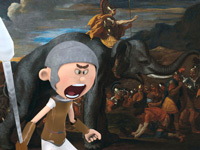
RESOURCES
This article uses material from the Wikipedia article "Second Punic War", which is released under the Creative Commons Attribution-Share-Alike License 3.0.
© Stories Preschool. All Rights Reserved.
